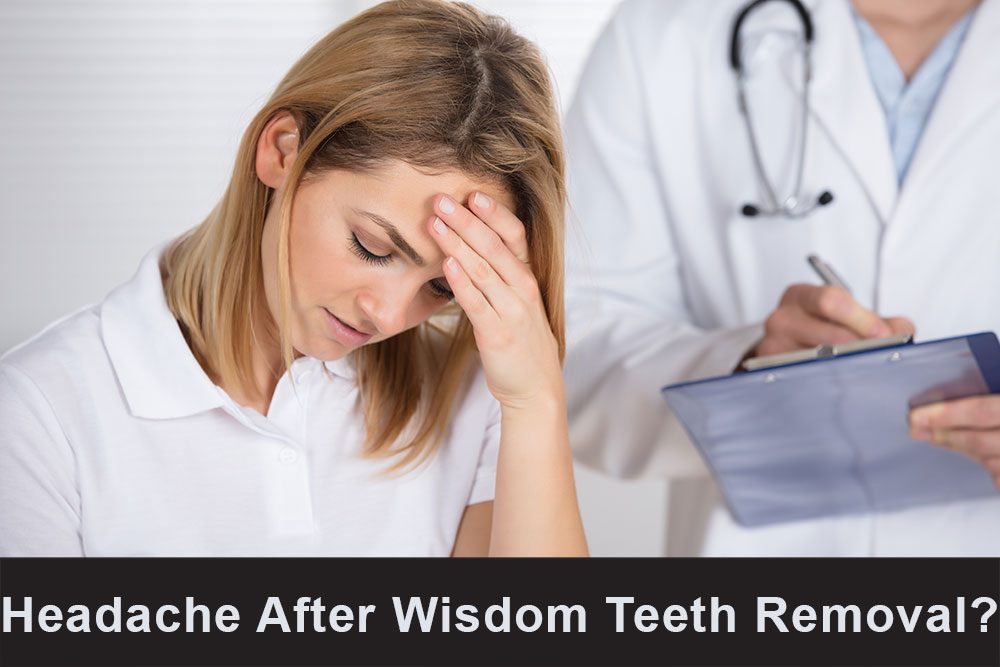Wisdom teeth extraction is a common dental procedure, often necessary when these teeth cause pain, overcrowding, or other dental issues. While the procedure is generally safe, one of the common side effects experienced by patients is headaches, even up to a week later. Understanding these headaches and how to manage them is essential for a comfortable recovery.
Understanding Headaches Post Wisdom Teeth Extraction
Reasons for Headaches Post Wisdom Teeth Extraction
1. Physical Stress and Jaw Soreness
The extraction process can be quite strenuous, especially if the wisdom teeth are impacted. This physical effort often leads to jaw soreness, which can manifest as a headache. This type of headache is typically a direct response to the strain placed on the jaw muscles during the procedure.
2. Restlessness and Inadequate Rest
Rest is a critical component of the healing process. Inadequate rest can lead to restlessness, slowing down the recovery and potentially causing headaches. Ensuring sufficient relaxation and sleep post-extraction is essential for a smooth healing process.
3. Dry Socket
A dry socket is a painful condition that occurs when the blood clot at the extraction site is dislodged. This exposes the underlying bone and nerves, leading to severe pain that can radiate to the head, causing headaches.
Management Strategies for Post-Extraction Headaches
1. Rest and Relaxation
Patients are advised to take it easy following their extraction. Adequate rest can significantly reduce the risk of headaches and aid in a quicker recovery.
2. Pain Management
Over-the-counter painkillers, such as ibuprofen, can be effective in managing post-extraction headaches. However, if the headache persists or worsens, it’s advisable to consult with a dentist or oral surgeon.
3. Dry Socket Treatment
Treating the underlying cause of the pain, such as a dry socket, is crucial. While home remedies like cold packs can offer temporary relief, professional dental treatment is often necessary.
Preventive Measures
Oral Hygiene and Care
Maintaining good oral hygiene after the extraction is essential. Patients should follow all aftercare instructions provided by their dentist, including proper cleaning and avoiding activities that could disturb the healing process.
Lifestyle Adjustments
Making certain lifestyle adjustments, such as avoiding strenuous activities and not smoking, can significantly help in preventing complications like dry socket and subsequent headaches.
Proper Care
Patients should follow their dentist’s advice closely and seek medical attention if they experience persistent or severe headaches. With proper care, the discomfort following wisdom teeth extraction can be minimized, leading to a quick and uneventful recovery.
Wisdom Teeth
Wisdom teeth, also known as third molars, are the last set of teeth to develop in the human mouth. Typically emerging in the late teenage years or early twenties, these teeth are located at the very back of the mouth. There are usually four wisdom teeth, one in each corner of the mouth, but some individuals may have fewer or none at all.
Development and Eruption
- Growth Patterns: Wisdom teeth can grow normally like other teeth, but they often face issues due to limited space in the jaw.
- Impaction: A common problem with wisdom teeth is impaction, where the teeth do not fully emerge through the gum line. This can be due to the teeth being angled incorrectly or simply a lack of space in the mouth.
Challenges and Considerations
- Hygiene Difficulties: Due to their location, wisdom teeth can be hard to clean effectively, increasing the risk of tooth decay and gum disease.
- Crowding: In some cases, emerging wisdom teeth can push against other teeth, causing misalignment or crowding.
Wisdom Teeth Infection
An infection around a wisdom tooth, often referred to as pericoronitis, can occur when bacteria and food particles become trapped under the gum surrounding an impacted wisdom tooth.
Causes and Symptoms
- Partial Eruption: Infections commonly arise in partially erupted wisdom teeth because the area is difficult to clean and can trap food and bacteria.
- Symptoms: Symptoms of wisdom teeth infection include pain, swelling, redness in the gums, difficulty opening the mouth, and a bad taste or smell coming from the infection site.
Treatment and Prevention
- Professional Care: Treatment often involves professional cleaning by a dentist, along with antibiotics to clear the infection.
- Oral Hygiene: Good oral hygiene practices, including regular brushing and flossing, are crucial in preventing infections around wisdom teeth.
Wisdom Tooth Removal
Wisdom tooth removal, or extraction, is a common dental procedure often recommended to prevent or treat problems associated with wisdom teeth.
Indications for Removal
- Preventive Measure: Removal is sometimes suggested as a preventive measure to avoid future problems like tooth decay, gum disease, or crowding.
- Therapeutic Extraction: In other cases, extraction is required due to existing problems such as pain, infection, cyst formation, or damage to adjacent teeth.
Procedure and Aftercare
- Surgical Procedure: The extraction may be simple or surgical, depending on whether the tooth is visible or impacted. It is usually done under local anesthesia, though sedation or general anesthesia may be used in more complex cases.
- Post-Operative Care: After the procedure, patients are advised to rest and follow specific care instructions to ensure proper healing. This includes managing swelling, pain, and following a soft food diet, as well as avoiding certain activities like smoking and strenuous exercise.
Risks and Complications
- Common Complications: Some common post-operative complications include swelling, bruising, pain, and temporary jaw stiffness.
- Dry Socket: A notable complication is dry socket, a painful condition where the blood clot at the extraction site is dislodged, exposing bone and nerves.
- A common myth is that Holes in Teeth that Aren’t Cavities are often associated with the result of headaches after wisdom teeth removals. However, that is not the case.
Wisdom teeth, their potential for infection, and the decision to remove them involve considerations of oral health, comfort, and the prevention of future dental problems. Each individual’s situation is unique, and decisions regarding wisdom teeth should be made in consultation with a dental professional.
Tags: Headache after Dental Surgery
